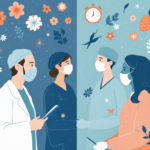Chickenpox Vaccines: Who Needs It & Why
Chickenpox, a highly contagious viral infection, is often perceived as a mild childhood illness. However, its impact can be far more severe in certain populations, including adults, travellers, and those whose immune systems are compromised. Vaccination has become a pivotal tool in preventing the disease and its complications, providing protection to those at higher risk. In this article, we explore the importance of chickenpox vaccines, identify who should consider vaccination, and explain why healthcare professionals and travellers need to be particularly vigilant.
Understanding Chickenpox and Its Vaccine
Chickenpox is caused by the varicella-zoster virus (VZV). Traditionally, it has been regarded as a childhood infection, but recent trends and changes in vaccination schedules mean that adults who never contracted chickenpox—or were never vaccinated—can be prone to severe symptoms and complications later in life. Complications may include pneumonia, bacterial infections, and, in some cases, encephalitis.
The chickenpox vaccine works by stimulating the body’s immune response to create antibodies against the virus. This not only reduces the likelihood of contracting chickenpox but also diminishes the severity of the disease if an infection does occur. Immunisation is especially crucial for those who are at a higher risk of encountering the virus, ensuring that both individuals and communities are better protected.
Who Needs the Chickenpox Vaccine?
While the vaccine is recommended for children in many immunisation programmes, there are several groups that should consider it, regardless of age. Firstly, adults who have not had chickenpox or have an unclear immunisation history are advised to get vaccinated. The risks associated with adult chickenpox are often more severe than during childhood, making the vaccine an essential preventive measure.
Travellers are among those who can benefit immensely from vaccination. International travel, particularly to regions where chickenpox is more prevalent or where health services may be limited, increases the likelihood of exposure. For individuals planning extended stays abroad or those visiting friends and relatives in areas with lower vaccination rates, the chickenpox vaccine acts as a crucial safeguard.
Healthcare professionals also represent a critical group in need of protection. Due to constant exposure to various infectious diseases, including potentially unvaccinated patients, healthcare workers should ensure they are immune. The nature of their work means that even a small outbreak can have significant implications for patient care and public health.
Why is Vaccination Important?
Vaccination plays a vital role in preventing the outbreak of infectious diseases and safeguarding individuals and communities. Even though chickenpox might be perceived as a minor illness, it can lead to complications that burden healthcare systems and affect the overall well-being of patients, particularly those with co-morbidities or weakened immune systems.
Moreover, chickenpox vaccination has significant indirect benefits. By vaccinating high-risk groups, community herd immunity increases, thus reducing the spread of the virus to vulnerable individuals such as newborns, pregnant women, or immunocompromised patients. This communal protection becomes even more crucial in healthcare settings, where the rapid spread of infectious diseases can lead to severe consequences.
The affordability and accessibility of modern vaccines further underscore the importance of immunisation. Despite common myths and misconceptions around vaccines, extensive research and trial data support the effectiveness and safety of the chickenpox vaccine. Preventative measures such as these not only reduce the incidence of severe diseases but also contribute to lower healthcare costs by preventing complications that would require more intensive treatment.
Considerations for Travellers and Healthcare Professionals
For Travellers
Travellers should consider their vaccination status before venturing abroad. Exposure to different strains of viruses, changes in health care standards, and variations in environmental conditions can all impact one’s health. An unvaccinated traveller might be at a higher risk of contracting chickenpox and experiencing severe symptoms due to unfamiliar or inadequate local support.
Additionally, vaccination can provide peace of mind during travel. With public health as a priority in many popular destinations, being vaccinated can also simplify interactions with local health services in case of an emergency. For those travelling to more remote areas, having preventive measures in place can make all the difference.
For Healthcare Professionals
Healthcare professionals must lead by example when it comes to vaccination. Not only does being vaccinated help protect these individuals from contracting and transmitting infections, but it also helps maintain a resilient healthcare system. Given the increased likelihood of exposure to infectious diseases, maintaining up-to-date immunisation records is an essential part of professional practice.
Regular vaccination contributes to a safer work environment and reinforces trust among patients. By ensuring that healthcare workers are protected, medical institutions can avoid disruptions in service and safeguard those who are more vulnerable. This is particularly important in settings where patients might be at risk due to their pre-existing conditions or advanced age.
Advancements in Chickenpox Vaccination and Future Perspectives
Over the years, research into varicella vaccines has yielded significant improvements in safety, efficacy, and delivery methods. Modern vaccines are designed to provide long-term immunity with minimal side-effects, making them an integral part of preventative healthcare. New developments in vaccine technology continue to enhance the immune response and offer additional protection, particularly for people with higher risks.
As global travel and migration increase, the relevance of vaccination programmes continues to grow. Ongoing studies and regular updates to immunisation guidelines ensure that adults, travellers, and healthcare professionals receive the most effective protection against chickenpox and its complications. The future of vaccination promises even more personalised approaches to healthcare, where individual risk factors and lifestyle choices will be considered in developing tailored immunisation schedules.
Concluding Thoughts
The chickenpox vaccine is an essential part of modern healthcare, providing critical protection to those at risk. Whether you are a traveller exploring new destinations, a healthcare professional safeguarding your patients, or an adult who missed childhood immunisation, vaccination offers a safe and effective way to reduce the risk of severe disease. By integrating chickenpox immunisation into routine healthcare practices, communities can benefit from reduced transmission rates and improved overall public health.
In a world where global travel is commonplace and healthcare standards continue to evolve, ensuring your vaccination status is up-to-date is both a personal and professional responsibility. For those interested in safeguarding their health and that of their loved ones, consider discussing the chickenpox vaccine with your healthcare provider. If you would like to explore your private healthcare options, feel free to book an appointment with the expert team at Olive Pharmacy today.


